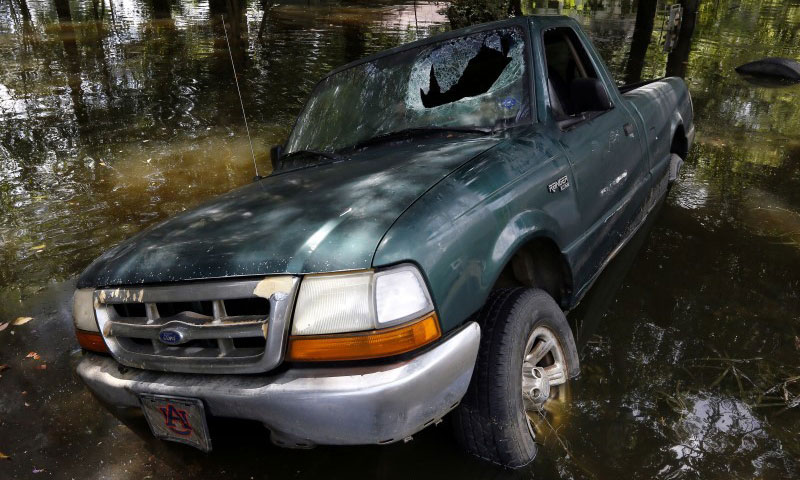
Bureau Moves to Stop Flood-Damaged Vehicles from Deluging Market
Last month’s flooding in Louisiana damaged thousands of cars. The National Insurance Crime Bureau wants to ensure none of those end up bought by the unwitting.
Buyer beware.
That’s the warning the National Insurance Crime Bureau issued following intense flooding in Louisiana last month. As many as 100,000 vehicles may have been damaged in the wake of what the Red Cross deemed the worst natural disaster since Hurricane Sandy. NICB is worried some of those cars may be repaired and put back on the market.
“The whole catastrophe response is pretty much fine tuned to these kind of events,” said Frank Scafidi, NICB director of public relations, referring to the group’s approach toward floods, hurricanes, and wildfires. “There’s just been so many of them.”
For example, after Sandy, dozens of cars and trucks got resold with the buyer being none-the-wiser that the vehicles were water damaged. But, for NICB, many lessons came out of the disastrous Hurricane Katrina, which put New Orleans out of commission for weeks, killed scores, and left tens of thousands of automobiles water damaged.
“We learned a lot,” Scafidi said. “What we did, specifically after Katrina and all that, was simply to get all the information possible on damaged vehicles.”
While officials in Louisiana enacted tough restrictions to ensure water-damaged vehicles weren’t resold, other states are more lax, according to Scafidi. A problematic vehicle from recent flooding in Louisiana might end up in, say, Nevada or Michigan. It’s called “title-washing,” he said. Oftentimes buyers don’t realize they’re getting a bad deal.
There are a few things to check for, like stains, mildew, or cleaning odors. A well-versed buyer might also note that the vehicle in question is being sold for far less than its book value, he said. That’s usually an indicator that something is afoot.
Additionally, NICB set up a vehicle identification number check database (known as VINCheck) to let potential buyers learn if their new car has suffered water damage.
“We are a part of that [recovery] process,” Scafidi said. “Our biggest contribution now is being a fraud prevention or response agency.”
NICB officials also reach out to counterparts in state and local government following a disaster like this summer’s torrential downpour in Louisiana. This is, Scafidi admits, a tricky situation because there’s a fine line between reaching out to first responders and being overbearing.
“It is a delicate balance. I think both sides understand that,” Scafidi said. “We’re not overbearing in providing [help]. This is what we do; this is our expertise: insurance fraud.”
NICB is not the only group to assist those affected by the wild weather. Last month, education groups launched relief and recovery efforts of their own.
A damaged car is seen in flood waters in St. Amant, Louisiana. (Jonathan Bachman/Reuters)





Comments